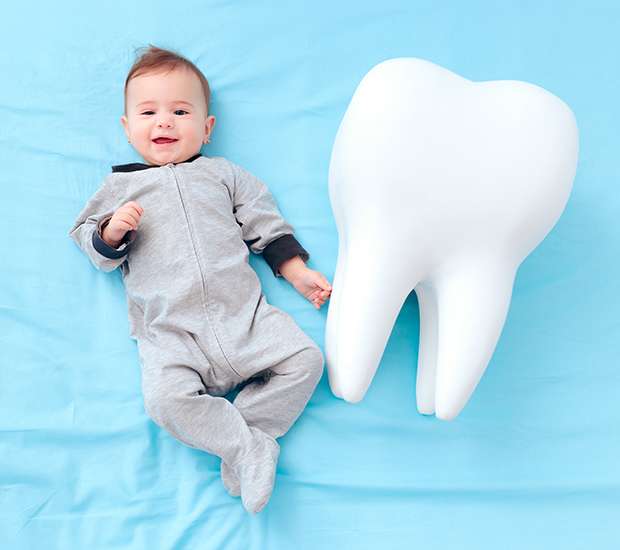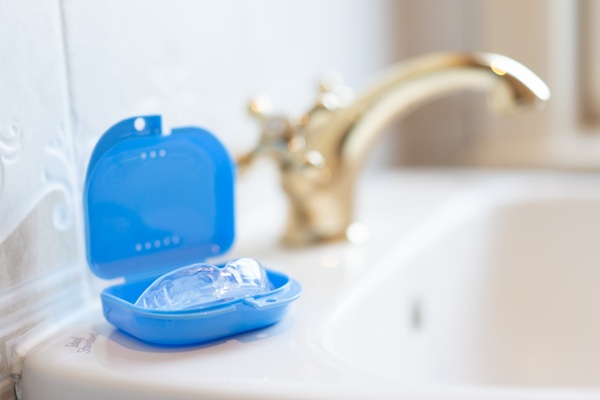Pediatric Growth & DevelopmentFullerton, CA
Pediatric growth and development ensure a child's lifelong oral health and overall well-being. Healthy baby teeth maintain space for permanent teeth and promote proper jaw development and function. Additionally, regular dental check-ups help instill good oral hygiene habits from a young age, allowing children to develop a positive relationship with oral health and professional dental care as they grow up. Furthermore, the early detection of dental problems can prevent more serious problems, such as misalignment and tooth decay, which can negatively affect the child's ability to eat, speak, and smile.
Dr. Bhallar and the entire team at Elevate Kids Dental are committed to helping your child maintain healthy growth and development. We will work with you to provide complete dental care and important resources to help maintain your child's health at home. Call our Fullerton office at (714) 888-4980 to learn more about our pediatric dental services or to schedule an appointment.
Anatomy and Development of the Mouth and Teeth
A human being will begin to form their teeth during fetal development. A healthy diet from their parent during pregnancy is important in utero and pediatric tooth development. The parent should consume adequate amounts of nutrients, such as calcium, phosphorus, vitamin C, and vitamin D.
However, certain medications and antibiotics should not be taken while pregnant. For example, tetracycline can affect bone development and lead to discoloration. Sulfonamides can also increase the risk of heart conditions, cleft lip or palate, and jaundice.
The fetus will begin to develop primary teeth around five or six weeks of pregnancy. By eight weeks, ten tooth buds will have already developed in two U-shaped bands of tissue that follow the contour of the fetus's upper and lower jaws. This tissue will eventually become the baby's gums. At around the third month of pregnancy, the permanent teeth will begin to form deep in the fetus's jawbone, where they will erupt as the child grows up. Finally, by the time of birth, twenty tooth buds have developed under the gum tissue.
“A human being will begin to form their teeth during fetal development.”
When Will My Child’s Teeth Come In?
Each child is different. However, a child's primary teeth usually begin to erupt between six and 12 months; some children may experience their first tooth as early as three months old. According to Standford Medicine, most of a child's primary teeth will erupt when they are about 33 months— over two and a half years old. Female children tend to have their teeth developed before male children. By the time they are three, most children will have a set of 20 primary teeth.
The following are general guidelines for how the primary teeth erupt during pediatric growth and development:
- The first tooth to come in is typically a middle front tooth in the lower jaw, known as the central incisor, and followed by the second central incisor in the lower jaw.
- The four upper incisors will typically erupt next
- Next, the four molars (back teeth) and remaining bottom two lateral incisors will begin to erupt
- After this, the cuspids (pointed teeth) erupt
- After the child is two, their second four molars will begin to appear
Pediatric growth and development varies from child to child. Do not be alarmed if a child's teeth do not follow this pattern. However, if teeth fail to erupt in a year after the standard time, check with Dr. Bhallar to ensure their teeth are developing properly.
“Regardless of the stage of their development, it is important for infants, children, and teenagers to visit the dentist regularly.”
Permanent and Wisdom Teeth
Through pediatric growth and development, permanent teeth will eventually replace a child's primary teeth. This process usually starts around age six when the first molars, or "six-year molars," begin to appear. The transition from baby teeth to permanent teeth can continue until the young patient's early teenage years, typically around the age of 12. By this point, the patient will have a total of 32 permanent teeth.
The last teeth, also known as the third molars or wisdom teeth, erupt between ages 17 and 21. While many people have these teeth removed, some will live their entire lives with all of their molars intact. Regardless of the stage of their development, it is important for infants, children, and teenagers to visit the dentist at least twice per year. Regular dental check-ups will help ensure proper dental health and address any concerns regarding the alignment and development of their teeth.
“Through pediatric growth and development, permanent teeth will eventually replace a child’s primary teeth.”
Check out what others are saying about our dental services on Yelp: Pediatric Growth & Development in Fullerton, CA
Common issues During Pediatric Growth & Development
Pediatric growth and development can be complex. There are several issues that parents and caregivers should be aware of as their children grow up. Identifying and treating these problems in their early stages is crucial to achieving healthy dental outcomes.
One of the most common concerns is tooth decay, which is highly prevalent among children. Factors contributing to tooth decay include poor oral hygiene and frequent consumption of sugary foods and drinks. However, one of the most effective ways to prevent and manage these issues is through regular dental visits and cleanings. These visits are not only for restorative treatment but also for preventive care and to detect the signs of tooth decay in its early stages.
Another significant issue in pediatric growth and development is malocclusion, or teeth and jaw misalignment. Malocclusion can lead to difficulties chewing, speaking, and maintaining oral hygiene. Genetic factors, thumb-sucking, and prolonged use of pacifiers and sippy cups are common causes of malocclusion.
Several other dental problems can affect children as they grow up. These include:
- Premature tooth loss: Premature loss of primary teeth due to decay or trauma can disrupt the natural alignment of permanent teeth.
- Delayed tooth eruption: When teeth may not emerge at the expected times, leading to concerns about possible underlying health issues or delays in development.
- Enamel hypoplasia:This condition involves underdeveloped tooth enamel, which makes teeth more prone to decay and sensitivity.
- Gingivitis:Inflammation of the gums, often due to poor oral hygiene, can progress to more severe periodontal diseases if not addressed as soon as possible.
- Dental trauma:Accidents and injuries can cause chipped or fractured teeth, requiring immediate attention to prevent further damage or infection.
Addressing these common issues through preventive care, regular dental check-ups, and early treatment can promote healthier pediatric growth and development.
“There are several issues that parents and caregivers should be aware of as their children grow up.”
Questions Answered on This Page
Q. When do children begin to develop their teeth?
Q. When will my child's primary teeth come in?
Q. When will permanent teeth begin to replace a child's primary teeth?
Q. What are common issues that can affect a child's oral health and development?
Q. How can a pediatric dentist help my child's dental growth and development?
People Also Ask
Q. How should my child take care of their space maintainer?
Q. What is the difference between standard and electric toothbrushes?
A Pediatric Dentist’s Role in A Child’s Growth & Development
Pediatric dentists play an important role in ensuring children's growth and development. Regular dental check-ups help identify and address dental issues such as cavities, misaligned teeth, and gum diseases before they become severe problems. Along with going over proper oral hygiene techniques, we also provide preventive treatments to help protect the young patient's teeth from disease and decay.
One such treatment involves pediatric airway dentistry, which helps young patients breathe properly through their nose. Children who chronically breathe through their mouth or snore can be more at risk for health and developmental issues. Early diagnosis and treatment, such as guided therapy and orthodontic devices, can optimize the child's ability to breathe while protecting their jaw development and oral health.
Healthy teeth and gums are essential for proper chewing and speech development, as they directly impact a child's nutrition and communication skills. As our patients grow up, we will monitor the growth of their jaws and the development of their teeth to help correct any abnormalities early on. Our team provides a dental experince that encourages children to have a positive relationship with going to the dentist and prioritize their oral health.
“Regular dental check-ups help identify and address dental issues such as cavities, misaligned teeth, and gum diseases before they become severe problems.”
Frequently Asked Questions
Q. What is pediatric airway dentistry?
A. Pediatric airway dentistry treats common concerns that affect a child's bite and palate, which can affect how they breathe and sleep. Dr. Bhallar is trained in airway dentistry and can assess your child to see if they are prone to breathing through their mouth, snoring, or having improper jaw alignment. By addressing these issues early, airway dentistry aims to improve your child's growth and development and overall quality of life.
Q. When should I schedule my child's first dental visit?
A. According to Standford Medicine Children's Health, children should go to the dentist by 12 months of age or within six months of their first tooth coming in. Depending on your child's age, Dr. Bhallar may conduct a full exam of their teeth, bite, gums, and oral tissues to check their growth and development. They may also undergo a gentle cleaning through tooth polishing which removes any built-up plaque, tartar, and stains.
Q. How can I best prepare my child for their first dental appointment?
A. When preparing your child for their first appointment at Elevate Kids Dental, talk to them positively about what to expect. Explain that Dr. Bhallar will help keep their teeth healthy as they grow up. Reading books or watching videos about visiting the dentist can make the experience more familiar and less intimidating. Scheduling the appointment early in the day when your child is well-rested and calm can help ensure a more comfortable and successful visit.
Q. What is the best way to clean my child's teeth?
A. After your child has a few teeth, use a soft-bristled toothbrush and a tiny amount of toothpaste. Brush the child's teeth gently in circular motions for a few minutes twice a day. Establishing a good oral hygiene routine early on will help promote a healthy smile and prevent oral health issues like cavities and gum disease. Additionally, supervise your child's oral hygiene routine until they can do it effectively on their own, usually around the age of 7 or 8.
Q. How do I help my child quit harmful habits, such as sucking their thumb or using sippy cups?
A. Introduce positive alternatives and reinforce them with praise and small rewards. Consistently encourage and support your child while being patient and understanding of their progress. Additionally, the Elevate Kids Dental team can provide personalized strategies tailored to your child's needs and temperament.
Definition of Pediatric Dental Terminology
Call Us Today
The Elevate Kids Dental team wants to make sure that your child gets the most out of their biannual visits to the dentist. We emphasize the importance of proper pediatric growth and development, giving you and your child the information and tools you need to maintain their oral health at home. Schedule a visit at our Fullerton office by calling (714) 888-4980.
Helpful Related Links
- American Dental Association (ADA). Glossary of Dental Terms. 2024
About our business, license, and website security
- Elevate Kids Dental was established in 2023.
- We accept the following payment methods: American Express, Cash, Check, Discover, MasterCard, and Visa
- We serve patients from the following counties: Orange County
- We serve patients from the following cities: Fullerton, Placentia, Costa Mesa, Yorba Linda, and La Habra
- CA (License #62070). View License Information and Specifics
- National Provider Identifier Database (1265735542). View NPI Registry Information
- Norton Safe Web. View Details
- Trend Micro Site Safety Center. View Details





